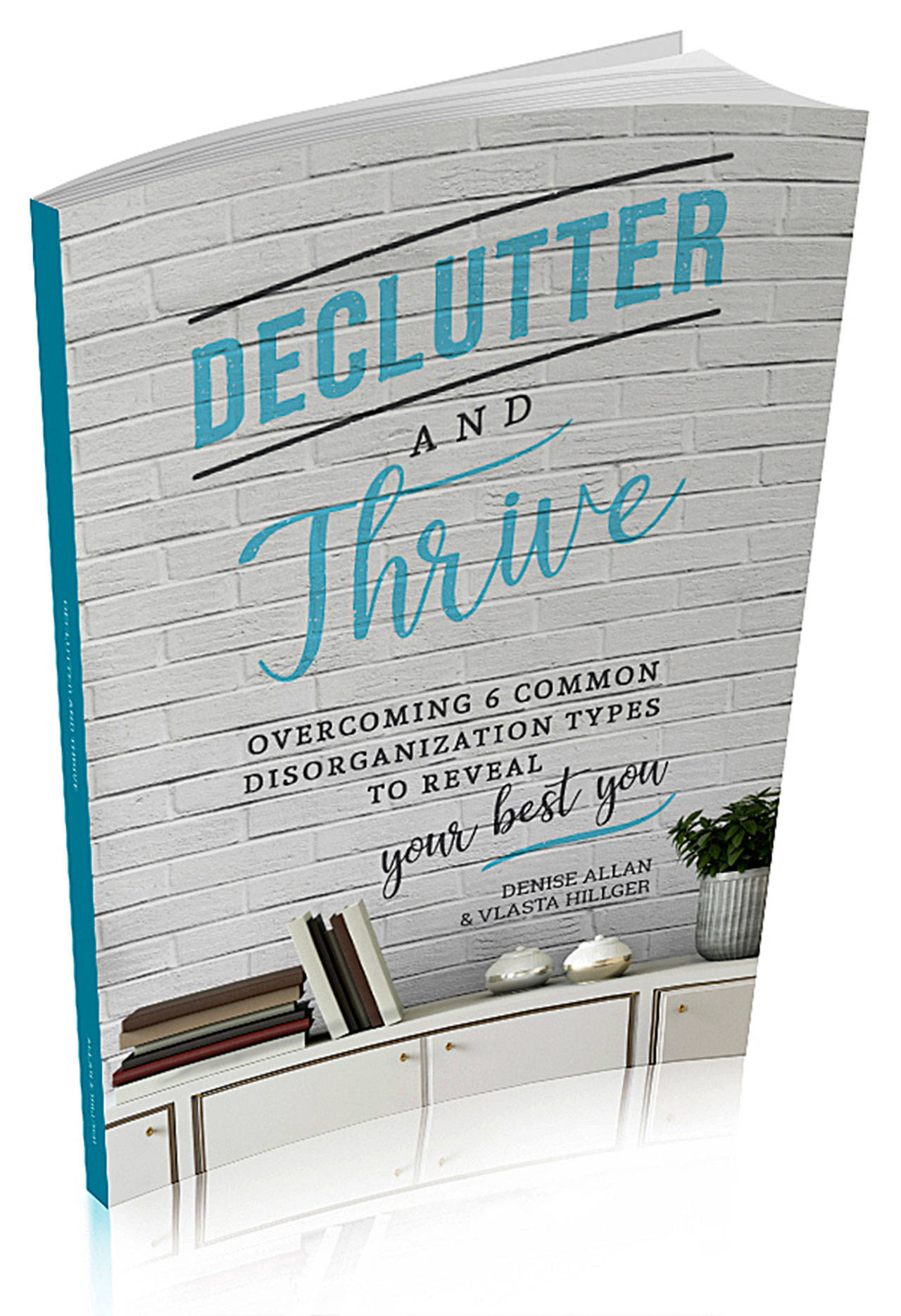Denise Allan has been organizing since kindergarten. Her report cards always seemed to read she needed to “stop organizing her classmates’ art supplies and work on her own projects.”
Now, many years later, Allan is the only certified Chronic Disorganization Specialist (CPO-CD) in the Pacific Northwest and is one of 23 Master Trainers in Chronic Disorganization in the world. She has been featured on three episodes of A&E’s Hoarders.
She launched her own professional organizing business, Simplify Experts, 12 years ago after being inspired by watching HGTV’s Mission Organization and TLC’s Clean Sweep during her workouts at the gym.
“I was so intrigued and I was like, ‘I can do this, I can totally do this,’” Allan said. “The penny dropped and I attended the Organizing Academy (now the Professional Organizers Training Institute) in Portland and I launched my business.”
Simplify Experts is based out of Redmond and serves Seattle and the Eastside.
Vlasta Hillger has also had a knack for organization for many years. She has been a professional organizer at the company for the past five years.
Through their years of helping people regain control over their lives through reorganization, Allan and Hillger decided to collaborate on a book.
Their book, “Declutter and Thrive: Overcoming Six Common Disorganization Types to Reveal Your Best You,” pairs real-life client stories with actionable insights central to overcoming six common disorganization behavior types in order to create awareness of the person’s struggle and what are some things they can do on their own to get organized.
“After so many years of helping probably thousands of people now, we’ve started to notice that clients tend to fall into certain categories of personality types and that’s what we were trying to address,” Hillger said.
In a typical day, a Simplify Experts organizer sees two clients, three hours each. Allan said they are there handling the physical items like sorting, donating, shredding, and dumping but they are also coaching the client through some of their personal issues that have led to their disorganization.
“Stuff is complicated. Dealing with the stuff is not that hard but organizing people takes a pro and I think the state of our home is kind of what’s going on in our minds too,” Allan said.
In the book, Allan and Hillger explain the six common disorganization personality types and provide a 30-question quiz to help readers identify their disorganizaiton personality type.
The Power Shopper is the person with closets and cupboards so full they won’t close.
“We have clients who buy things online all night and by the time they arrive, they don’t remember what they’ve bought and everything is just piling up to the point where they’re behind on their laundry or overall hygiene is in decline,” Hillger said.
The Paper Magnet is the person who has paper and mail piles that are falling over.
“These are the folks who bring in the mail and leave it in a pile and it’s too depressing to look at it all because it’s all bills and reminders of bad things so maybe bills aren’t getting paid,” Hillger said.
“Almost 23 percent of the American population pay their bills late because they can’t find them,” Allan said. “But the paper magnet are also often people with master’s degrees that love to research or have a hard time reading on the computer for long periods of time.”
The Inspired Hobbyist is the person who can’t create despite volumes of materials.
“These are the people who are super creative and they walk into a Michael’s store and it’s heaven on earth and they must have everything and start all these projects that they can’t finish,” Hillger said. “They get to like a creative paralysis where they can’t create anymore because there’s just no physical or mental space.”
The Caregiver is the one who puts everything on hold to care for a loved one.
“We’re seeing a lot of people who are having kids later in life and they get to a point where they’re super busy taking care of kids and doing their careers and then find themselves taking care of a sick parent or family member who needs a lot of care,” Allan said.
The Easily Distracted is someone who struggles with an overwhelming to-do list.
Allan said this type is possibly the most common type as it can cross over to several of the other types.
The Overburdened Employee is someone whose disorganization at work is impacting their career.
“These are the people who just need some help managing tasks, help them organize their schedules and help with their overall productivity and putting boundaries around work too,” Hillger said.
The book identifies the six types, provides the techniques Allan and Hillger have put in place to help support them, and offers their five-step clutter clearing process.
“I think everyone can pull a nugget or two out of this book. Some things you may have heard before but there’s a lot of new and different perspectives and thought processes and case studies in there and help give people those insights,” Allan said.
More than anything, Allan and Hillger want to relieve the stigma of disorganization equating to failure, and empower people to identify their struggles and get the help they need to have a healthy and successful life.
The book was published on June 12 and is available on Amazon. For more information on Simplify Experts, visit https://simplifyexperts.com/.



